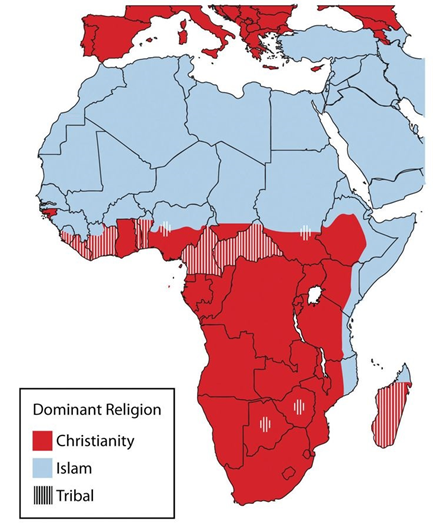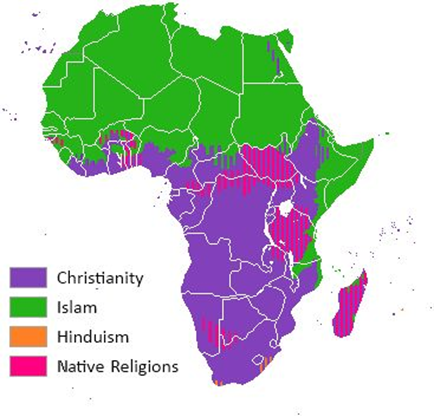15th Century: Christian Missionaries
In the 15th century, the papacy granted Portugal exclusivity over trade with Africa and also missionary activity through the principle of padroado. The Portuguese evangelized some kings, which facilitated the slave trade, particularly in the Kongo empire where the son of Manikongo became the first black bishop, but Christianization mainly affected the slaves deported to the Americas and not the Africans.
The efforts of Christian missions that intervened in the 19th century during the partition of Africa did not meet with great success; at the beginning of the 20th century, only 9% of Africans were Christians.
Traditional African religions, which historically dominated the regions of East Africa, Central Africa, Southern Africa, and the coastal region of West Africa, remained widely practiced.
20th Century: Rise of Evangelical Protestantism and New Religions
In the 20th century, a new rise of Christianity appeared in Africa, especially in the sub-Saharan region where multiple denominations abounded. It was partly due to the proselytism of evangelical Protestants, but also to the emergence of prophets creating new churches. These African institutional churches, estimated at nearly 6,000 in 1968, were estimated at more than 11,500 in 2004, most of them being totally unknown outside Africa. At the beginning of the 21st century, Africa is the continent where the number of Christians is increasing the fastest.
For more information :
- https://fr.wikipedia.org/wiki/Portail:Afrique
- https://en.wikipedia.org/wiki/Africa
- https://africacenter.org/
- https://journals.openedition.org/etudesafricaines/
- https://etudes-africaines.cnrs.fr/
- https://journals.openedition.org/etudesafricaines/
- https://www.afdb.org/fr/documents-publications/economic-perspectives-en-afrique-2024


